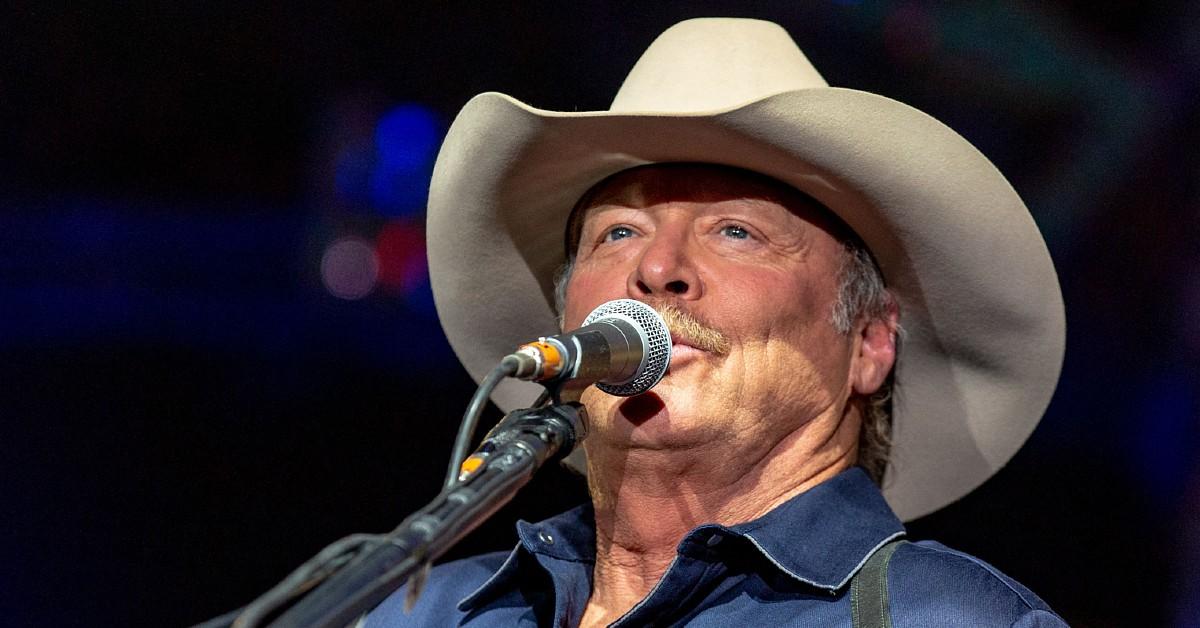Now 66, Alan Jackson Finally Reveals Why He Quit Music For Good

Alan Jackson has finally spoken openly about why he made the difficult decision to walk away from music for good.
For years, fans were left in the dark, wondering what caused one of country music’s most beloved icons to step back from the spotlight after decades of chart-topping hits, sold-out tours, and a legacy that helped shape the genre itself.
Though whispers circulated—ranging from health issues to personal heartbreak—Alan remained silent, choosing to live a quieter life away from the cameras and roaring crowds.
Now, for the first time, he’s revealed the truth, and it’s more heartfelt and deeply human than anyone expected.
Alan Jackson’s journey to stardom was one marked by hard work, humility, and an unwavering commitment to traditional country sound.
From his debut in the late 1980s to becoming a household name throughout the ’90s and 2000s, his songs touched millions.
Tracks like “Remember When,” “Chattahoochee,” and “Where Were You (When the World Stopped Turning)” weren’t just hits—they were emotional anthems, filled with stories of love, loss, family, and faith.
Fans grew up with his voice and lyrics, and many believed he would be on stage forever.
That belief made his slow retreat from the spotlight in recent years even more painful to watch.
In a recent emotional interview, Jackson admitted that stepping away from music wasn’t just a choice—it became a necessity.
For years, he had been privately battling Charcot-Marie-Tooth disease, a degenerative nerve condition that affects balance and muscle strength.
He was diagnosed more than a decade ago, but he kept the condition largely private, determined not to let it define his career or alter the way fans saw him.

But eventually, it did.
Performances became harder.
Standing for long periods became a challenge.
And while his voice remained strong, his body began to betray him.
He confessed that at first, he tried to push through.
He kept touring, recording, and smiling for fans, even on days when just walking onto the stage took everything he had.
But there came a moment, he says, when he realized he was no longer able to give the audience the kind of show they deserved.
“It wasn’t fair to them,” he said.
“And it wasn’t fair to me, either.”

That realization broke his heart, but it also gave him peace.
He wasn’t quitting because he didn’t love music anymore.
He was stepping away because he loved it too much to offer anything less than his best.
But the disease wasn’t the only factor.
Jackson also spoke about the toll fame took on his personal life.
He recalled how often he was away from home, how many family milestones he missed, and how hard it was to be present while constantly being pulled by the demands of the industry.
As he grew older, he began to see time differently—not in terms of album cycles or tour schedules, but in memories missed and years he couldn’t get back.
Spending time with his wife, children, and grandchildren became a priority.

In his words, “Music gave me everything, but it also cost me moments I can never replace.”
His voice cracked with emotion as he admitted that part of him feared fans would forget him.
That his quiet exit might be seen as a fade into irrelevance.
But instead, the opposite has happened.
Fans have rallied around him with love, support, and endless appreciation for what he gave over the decades.
Jackson says he’s overwhelmed by the letters, messages, and stories people have shared about how his music helped them through both good and hard times.
“That’s the legacy I care about,” he said.
“Not awards or charts—just knowing the songs meant something to someone.”

Though he says he won’t return to full-time music again, Jackson hasn’t ruled out the occasional studio recording or special performance if his health allows.
But for now, he’s content sitting on the porch, watching his grandchildren grow, playing guitar when the mood strikes, and living the kind of simple life he often sang about.
Alan Jackson’s decision to step away wasn’t dramatic or scandalous—it was honest, quiet, and deeply personal.
It was a farewell on his own terms, one rooted in love for the music, respect for his fans, and a desire to spend his remaining years surrounded by what matters most.
In the end, his final act may be his most powerful: showing the world that sometimes, the bravest thing a legend can do is simply say goodbye.





